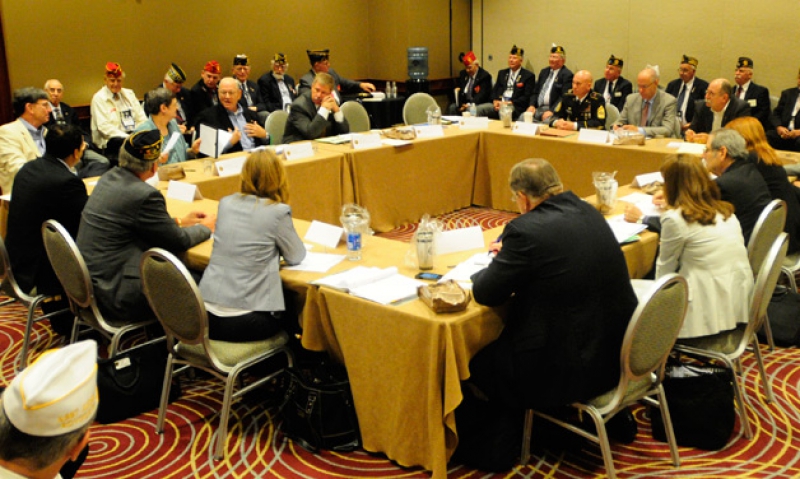
Washington Conference event to explore ways to improve credentialing opportunities for veterans at the state level.
After improving credentialing opportunities for veterans at the federal level, The American Legion’s Economic Division has turned its focus to making similar progress for veterans in states’ credentialing certification processes.
This topic, among other developments, will be at the forefront of the Legion’s Credentialing Roundtable on Feb. 25 from 9:45 a.m. to 12:30 p.m. at the Washington Hilton in the nation’s capital. The event, which coincides with The American Legion’s Washington Conference, will welcome officials from the White House, DoD, the Teamsters and Stateside Associates to discuss veterans credentialing - an issue that made significant progress in 2012, thanks in large part to the Legion’s spearheading of the Veteran Skills to Jobs Act and the Military Commercial Drivers License Act of 2012.
After scoring legislative victories in credentialing at the federal level, the Legion’s main priority is state legislatures, which control their own requirements for licensing or certifying in professional fields independent of federal requirements. The roundtable plans to explore the best ways to accomplish this goal within states - whether it’s through lobbying state lawmakers or urging passing of federal legislation like the Military CDL Act, which allowed states to lift residency requirements to grant commercial licenses to active-duty and reserve military truck drivers.
“We’re definitely pleased with the results of the Military CDL Act,” said Steve Gonzalez, assistant director of the Legion’s Economic Division. “It’s estimated that the bill created around 200,000 immediate jobs for qualified military truck drivers. We think the federal government has a chance to open doors for veterans in other professional areas with similar measures. Lobbying state governments to embrace the legislation and lift their requirements is equally important.”
The roundtable will give federal and state-oriented officials an opportunity to explore such issues and provide updates on their respective state-credentialing initiatives. Also among the planned topics are ways to further improve federal credentialing opportunities for veterans and military, and what effect sequestration could have on current and future credentialing initiatives.
Gonzalez says that even though significant accomplishments have been made in the credentialing field, it’s important that the issue doesn’t fall by the wayside.
“A veteran or servicemember who has already been trained in the military to perform a trade or skill should have an easier route to civilian employment in that field. It’s common sense,” Gonzalez said. “The individual shouldn’t have to re-train in his or her specialty stateside to qualify for the job, especially when the taxpayer has already paid for the military training.”
- Washington Conference

